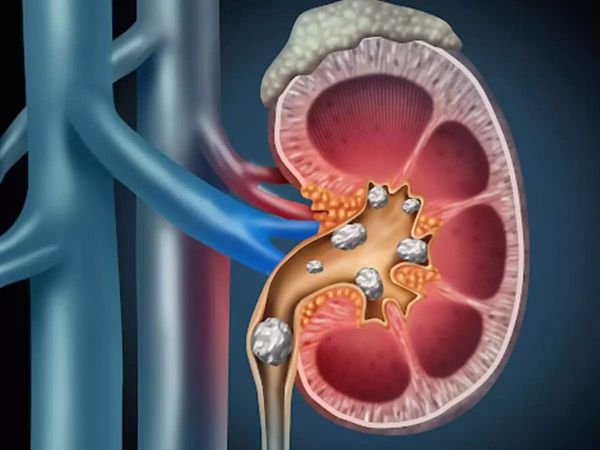
Nowadays, the problem of kidney stones is increasing rapidly all over the world. Experts believe that one of the main reasons for this is lack of water in the body i.e. dehydration. When the body does not get enough water as per its requirement, it can cause many health problems, the most prominent of which is the risk of kidney stones.
Kidney stones are solid deposits of minerals and salts that get deposited in the kidneys. These can range in size from small grains of sand to the size of a large golf ball. When the concentration of minerals in urine becomes high, it begins to accumulate. In this condition, minerals like calcium, oxalate and uric acid start taking solid form and due to lack of water, they turn into kidney stones.
How does drinking less water increase the risk of kidney stones?
According to Dr. Ankit Sharma, Urology Specialist, Manipal Hospital (Pune), when there is a lack of water in the body, the amount of urine decreases and the urine becomes more concentrated. This thick urine contains minerals like calcium, oxalate and uric acid in high amounts, which cause the formation of kidney stones. If not taken care of in time, these small crystals can turn into large stones, which can cause pain and other problems.
When dehydrated, the concentration of urine increases, which triggers the process of crystallization and increases the likelihood of kidney stone formation. This causes problems like body pain, blood in urine and frequent urination.
How can drinking water prevent kidney stones?
If you drink enough water, it dilutes the minerals and salts present in the urine, thereby reducing the chances of kidney stone formation. Therefore, it is important to drink adequate amounts of water throughout the day, especially in summer or after physical activity. Dr. Sandeep Mandal, Nephrologist, Manipal Hospital, Gurgaon, says that the body needs at least 8-10 glasses of water throughout the day. Drinking enough water keeps urine diluted and reduces the chances of kidney stone formation.
What is the treatment for kidney stones?
Treatment of kidney stones depends on the size and type of stone. Small stones can be passed out naturally through urine without any surgery, for which it is advised to drink more water. Whereas, for larger stones procedures like extracorporeal shock wave lithotripsy (ESWL), ureteroscopy and percutaneous nephrolithotomy (PCNL) are performed.